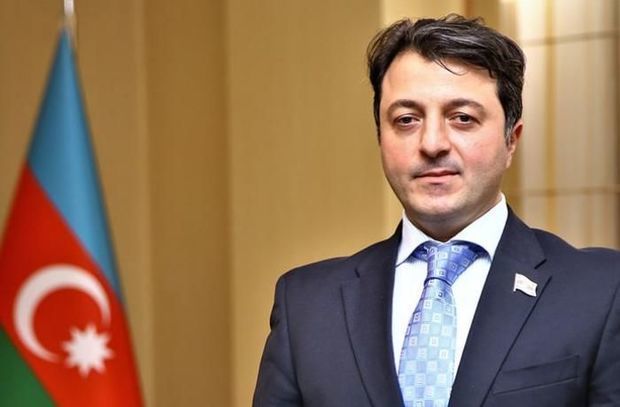Azerbaijani Deputy Urges Armenia to Dismantle EU Mission for Peace Agreement to Advance

Call to Withdraw EU Mission in Armenia Amid Peace Treaty Progress
In a recent statement, Azerbaijani parliamentarian Tugrul Ganjaliyev called for the immediate withdrawal of the European Union Mission in Armenia (EUMA), asserting that its presence hinders the normalization of relations between Armenia and Azerbaijan. This demand comes as the two nations make significant progress on a peace treaty, including the initialing of a draft agreement in Washington, D.C. that reportedly includes provisions for the withdrawal of third-party missions.
Ganjaliyev's remarks highlight the ongoing tensions in the South Caucasus, where the EU's monitoring role has become a point of contention. Azerbaijan views the mission as biased and intrusive, while Armenia and the EU see it as a stabilizing force. As the two nations move closer to a formal peace agreement, the fate of the EUMA could become a pivotal factor in whether the deal materializes.
Background on the EU Mission and Peace Process
The EUMA was launched in February 2023 as a civilian observation initiative to monitor the volatile border between Armenia and Azerbaijan following the 2020 Nagorno-Karabakh war. The mission, composed of unarmed observers from EU member states, is mandated to report on security incidents, promote confidence-building, and support regional stability. As of August 2025, EUMA announced it had conducted over 6,000 patrols, underscoring its active role in the area.
The peace process between Armenia and Azerbaijan has gained momentum in recent months. A trilateral meeting in Washington, D.C., with U.S. mediation, led to the initialing of a draft peace treaty on August 11, 2025. Both countries subsequently published the text, which includes key provisions such as:
- Mutual recognition of territorial integrity
- Border delimitation
- The unblocking of regional transport links
The agreement, if ratified, aims to end nearly four decades of hostilities. However, the draft includes clauses that address the presence of external actors. Article 7 reportedly stipulates that, upon ratification, third-party missions—including the EU monitoring team—must withdraw from the border areas to ensure bilateral control over security matters. This has fueled debates about the mission's future, with Azerbaijan insisting on its removal as a precondition for lasting peace.
Ganjaliyev's Statement: A Call for Regional Sovereignty
In his statement, Deputy Ganjaliyev argued that the initialed peace treaty imposes "serious obligations" on Armenia, particularly regarding the control of third-party involvement. He contended that the document explicitly requires Armenia to terminate the EUMA and repatriate its participants.
"The EU mission was dispatched at France's initiative to interfere in South Caucasus affairs through Armenia and has been engaged in gathering intelligence against Azerbaijan from the outset," Ganjaliyev claimed. He warned that failure to dissolve the mission could lead to "destructive consequences" and urged EU officials to take proactive steps toward its liquidation. Ganjaliyev’s comments align with Azerbaijan's broader push for unmediated bilateral relations, stating that Armenia must not permit military forces or missions from third countries in the region.
Ganjaliyev's comments echo a consistent Azerbaijani narrative. He has repeatedly criticized the EUMA on social media, labeling its observers as "bino-lunatics" conducting surveillance on Azerbaijani positions and accusing them of venturing into prohibited areas. Azerbaijani media outlets have amplified this view, arguing that the peace agenda leaves no room for the mission, which they portray as undermining regional security.
Perspectives from Armenia and the EU
From the Armenian perspective, the EUMA is a crucial deterrent against potential aggression. Prime Minister Nikol Pashinyan's government has credited the mission with providing transparency and reducing ceasefire violations, allowing negotiations to proceed without duress. Armenian analysts argue that withdrawing the observers prematurely could embolden Azerbaijan, especially given past border incursions.
The European Union has reaffirmed its commitment to the normalization process but has not directly addressed Ganjaliyev's demands. Instead, EU officials have emphasized the mission's role in fostering dialogue. Critics in Azerbaijan, including Ganjaliyev, attribute the mission's origins to French influence, viewing it as part of broader Western interference.
Implications for the Peace Agreement
Ganjaliyev's statement underscores a key Azerbaijani condition: for the peace agreement to "come true," Armenia must prioritize regional sovereignty over external oversight. Proponents in Baku argue that removing the EUMA would eliminate perceived biases and allow the two nations to manage their borders independently, paving the way for economic integration. Conversely, Armenian voices warn that conceding on the mission could expose vulnerabilities, particularly in border regions like Syunik.
As negotiations continue, the EUMA's status may serve as a litmus test for mutual trust. The U.S.-brokered draft represents a historic opportunity, but unresolved issues like the mission's role could delay ratification. Ultimately, achieving lasting peace will require compromises from all sides to ensure the agreement translates into stability on the ground.
